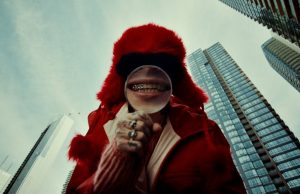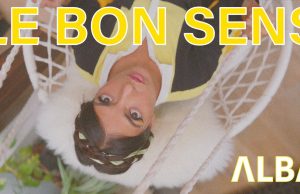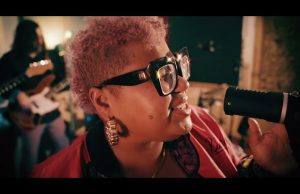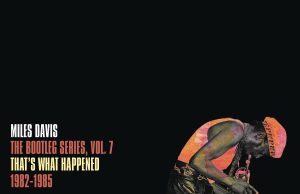THE EDITED PRESS RELEASE: “Slow Magic, 1977-1978 is a collection of never-before-heard songs that Jeff Bridges wrote and recorded with a band of his oldest and closest friends. At turns unruly, inventive, vulnerable and joyfully weird, the tapes capture him singing and playing with total joy and abandon. The ragtag exuberance of these recordings not only evokes L.A. at a specific place and time-they reveal a missing link in the life of Bridges, an actor who has always considered himself a musician.
A native of West Los Angeles, Bridges was born into a showbiz family that happily encouraged him to follow them into movies and television. “I had other interests like music, painting, ceramics, all different kinds of things,” he says. “And my dad would say, ‘Jeff, don’t be ridiculous. That’s one of the great things about acting. You’re going to be called upon to tap into all the talent and different interests you have.’ ”
Even after being nominated for an Academy Award at age 22 for his role in 1971’s The Last Picture Show, Bridges was uncertain if acting would his path. He bought a ramshackle house in the hills above Malibu, which became a clubhouse for a group of close friends who had been the misfits of University High School, class of 1967. Among them were Stan Ayeroff (a guitar virtuoso who later wrote books about Django Reinhardt and Charlie Christian); David Greenwalt (a guitarist and songwriter who later started writing scripts and eventually co-produced Buffy The Vampire Slayer); Matthew Bright (a bassist who went onto to direct Reese Witherspoon in the gonzo cult film Freeway); and Steve Baim (their fearless leader, famous for his spontaneous art-making, taking over 300 acid trips, and auditioning to be James Brown’s drummer).

At the Malibu pad, they surfed and flew kites and soaked in the hot tub and sweated in the sauna that Jeff installed. Everyone played music. Songwriting was just an extension of the hang-as effortless as dancing or sharing a joint. While Bridges worshipped Bob Dylan and The Beatles, his approach to making music was spiked with weirdness — he also loved Captain Beefheart and Moondog.
After Jeff finished 1976’s blockbuster remake of King Kong, he and his friends rented a warehouse in Venice, CA, where they recorded songs that included Obnoxious, a gloriously chaotic waltz that satirizes self-consciousness, and Slow Magic, a sweet shuffle about stoned enlightenment. The sessions were overseen by songwriter and orchestrator Ken Lauber, who had recently relocated to L.A. to work with Dylan and The Band at Shangri-La studio in Malibu. He and Bridges met when Lauber did the soundtrack for Hearts Of The West. “Jeff was going to EST seminars with Werner Erhard, and that enabled him to get in touch with these psychological underpinnings of his life experiences up to this point,” says Lauber. “I thought he’d honed his writing and singing to a point where it could be recognized as a commercial venture.”
An assortment of old friends and L.A. oddballs floated through the sessions. Horns were played by Sam “Sluggo” Phipps or Billy Superball — both members of the guerilla theater troupe The Mystic Knights of Oingo Boingo, which later morphed into Oingo Boingo, led by composer Danny Elfman. While Jeff was recording at Village Recorder, the storied studio soon to be taken over by Fleetwood Mac for Tusk, he ran into the legendary character actor Burgess Meredith, who wrote and directed Jeff’s second film-the surreal thriller The Yin & Yang of Mr. Go (1970). Meredith was an early supporter of Jeff’s music and encouraged him to contribute original songs to the film. A few years later, fresh off his role in Rocky (1976), Meredith added extraordinary monologues to Kong and Here On This Island, two mind-bending slices of mutant disco. The inspiration for Kong came from Jeff’s concept for a sequel to King Kong; when producer Dino De Laurentiis rejected his pitch, Jeff turned it into a song.

At times, their music occupied the same airspace as Arthur Russell, Talking Heads or Frank Zappa — or all of them playing together. They were aware their tastes might be too weird or vulnerable for public consumption. After the sessions were shelved, Jeff and his friends continued to meet privately for “The Wednesday Night Jam,” a drug-fueled, free-form ritual held every Wednesday night at Baim’s storefront art studio in Culver City. The rules were simple: 1) No songs, 2) No blues, 3) No preparation. The racket they made together could be disastrous or glorious. Either way, they loved it. For Jeff, it was a refuge from the pressure of movie stardom, a place where he was allowed to lose himself, surrounded by the old friends he trusted most. The instrumental collages of Space #1 and Space #2 come from that space.
As Jeff’s fame grew, the friends continued to meet, generating new songs and accumulating self-recorded tapes traded among themselves like Deadheads. Meanwhile, his movie career and his music started to converge. He and T-Bone Burnett became lifelong friends and collaborators after meeting on the set of Heaven’s Gate (1980). Burnett and Bridges worked closely to develop the character and music of Crazy Heart (2010), for which Jeff won the Oscar for Best Actor. Burnett went on to produce Jeff’s self-titled 2011 album, the followup to his first solo album Be Here Soon (2000). Following Crazy Heart, Jeff started touring with The Abiders, who have been his live band ever since.
After collaborating with Jeff on the 2015 ambient / spoken-word album Sleeping Tapes, Keefus Ciancia was in the studio with Jeff when Bridges happened to pull up some old recordings from the 1970s. Ciancia was blown away. He said that the old tapes sounded like “The Band playing at CBGB with The Exploding Plastic Inevitable.”

The music on Slow Magic, 1977-1978 comes from a single decaying cassette labeled “July 1978.” It represents a cross-section of those lost 1970s sessions. Ciancia, Jean Sievers and Matt Sullivan spent the second half of 2024 working closely with Bridges to prep the music for release. Though he’s on a tight filming schedule, Bridges devoted himself to every aspect of this release-sharing stories for countless hours, studying mixes and sequences, and even hand-drawing a version of the label logo for the artwork.
Whether films, music, or visual art, his process has always been to joyfully immerse himself in whatever opportunity surfaces in the moment. He just never thought that opportunity would emerge for these tapes. “Pretty wild that this thing that happened around 50 years ago wants to bloom,” says Jeff. “I guess weirdness is what’s happening these days. You never can tell what’s gonna happen.” The spirit of these tapes is connected to Emergent Behavior, a series of raw, unpolished songs that Jeff has been recording and releasing in recent years via his website.
All physical formats include extensive liner notes by Sam Sweet featuring a new interview with Bridges and a treasure trove of never-before-seen archival photos courtesy of photographers Loretta Ayeroff and Candy Clark. The album features 11 previously unreleased tracks newly mastered by Grammy-nominated engineer John Baldwin. Behind the scenes, filmmakers Isaac Gale, Paul Lovelace and Ben Wu (the team behind the acclaimed 2025 documentary Swamp Dogg Gets His Pool Painted) have produced a series of short docs surrounding the project.”








































